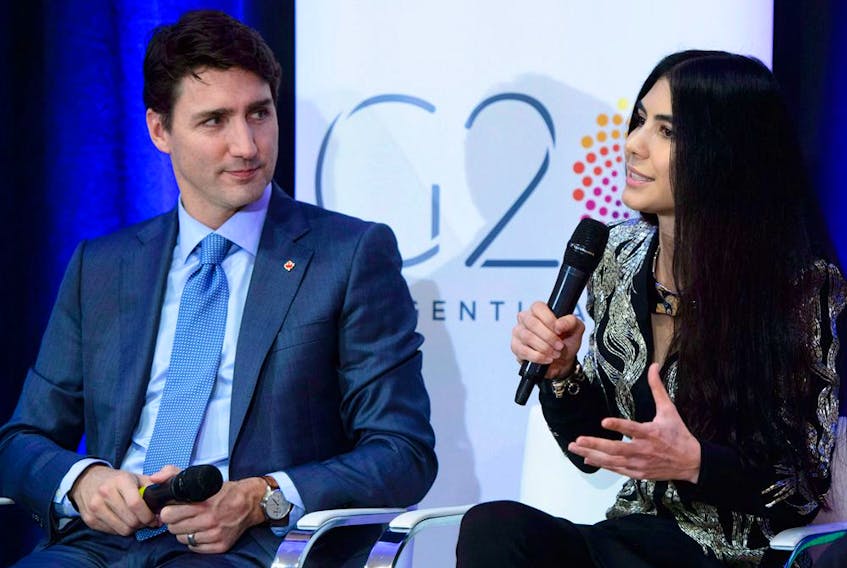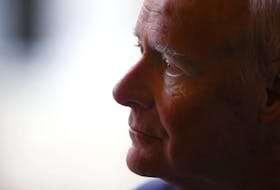Shahrzad Rafati was only 17 when she landed in Vancouver with a single suitcase of belongings. She knew little English, had no computer skills and had lived through both revolution and war in her birth country of Iran. Twenty-three years later, Rafati has taken a tech company public in the largest IPO in the Toronto Stock Exchange’s history for a firm run by a female founder and chief executive.
BBTV Holdings Inc. debuted on the TSX on Wednesday at $16 per share after successfully raising $172.4 million. The bulk of the cash — $158.8 million — was used to buy back the 51 per cent stake it sold to European media conglomerate RTL Group in 2013 for $36 million.
Following on the recent success of Dye and Durham Ltd. and Nuvei Corp., BBTV’s IPO also ranks among the top-ten for tech companies on the TSX.
“I hope we’re making history,” Rafati said in an interview. “I hope women and girls can see themselves in this moment and realize that no achievement is out of reach no matter what corner of the world you’re from.”
BBTV is a tech and media company that helps clients such as the NBA, Sony Corp. and AT&T Inc.’s Warner Brothers create, distribute and predominately monetize their digital video content across platforms such as YouTube, Facebook and Snapchat. The company doesn’t just work with the original content that its partners own, either. It tracks down fan-uploaded content — think of when YouTube users upload NBA highlights — and works to monetize them as well.
Rafati came up with the idea only a few months into founding BBTV. The company was launched in 2005, the same year as YouTube, and started in hardware. Rafati wanted to take advantage of the rise of digital video and helped create a product that would allow users to watch videos from the Internet on their TV’s — a Google Chromecast that came eight years too early.
When the company didn’t hit the ground running, Rafati changed its focus. She noticed that fans were uploading videos they didn’t hold the rights to on YouTube and that the actual owners were swiftly taking them down. What they likely saw as an inconvenience, she saw as opportunity.
I hope women and girls can see themselves in this moment and realize that no achievement is out of reach no matter what corner of the world you're from
“A good entrepreneur is one that really pays attention to trends and you need to pivot as needed,” Rafati said. “When we first started the business, there was also a lot of activity around fan-uploaded content so we wanted to put the right holders back in control of the IP, help them understand insights associated with that content and bring them revenue streams.”
BBTV also works with individual content creators such as El Salvador’s Luis Fernando Flores Alvarado, better known as “Fernanfloo,” one of the world’s most popular YouTubers with more than 38 million subscribers.
Rafati said Alvarado had 8,000 monthly views when BBTV started working with him and today, he generates around 100 million. BBTV helped him grow his audience, attract advertisers to his content and monetize fan-uploaded videos and launch his own gaming app.
When ranked by monthly views, BBTV’s content has the second most behind only Google, which owns YouTube. The Vancouver-based company said it has 53 per cent of Google’s unique video viewers and four times the amount of third-place Facebook’s.
As its viewership rose, so did its revenue. Rafati said BBTV’s revenue grew at a 63 per cent CAGR between 2014 and 2019. In 2014, the company’s revenue was $33 million, while in 2019, it hit $372 million. According to BBTV’s prospectus, COVID-19 served to accelerate viewership, which increased by 15 per cent in the company’s second quarter. It’s now expecting that revenues will be 25 per cent higher in the third quarter of 2020.
But like most tech companies, BBTV isn’t profitable yet. In the six months ending on June 30, 2020, BTV reported a $9.7 million comprehensive loss on revenue of $187 million. That works out to a loss of $0.73 per share. Although its revenues are rising, so too are its expenses and costs of revenue.
Rafati said the numbers show a company that it is edging closer to profitability, something she said is just as important as growth at this stage.
“Few companies can say like BBTV that they’re almost at break even given our scale and growth and we are operating in a market where the opportunity is massive,” said Rafati, noting that digital advertising on a global scale is expected to hit $440 billion in 2022 and BBTV is poised to take advantage.
On a rough day for the markets, BBTV didn’t have the best debut on the TSX. It closed at $15, down more than six per cent.
Financial Post
• Email: [email protected] | Twitter: VicF77
Copyright Postmedia Network Inc., 2020









